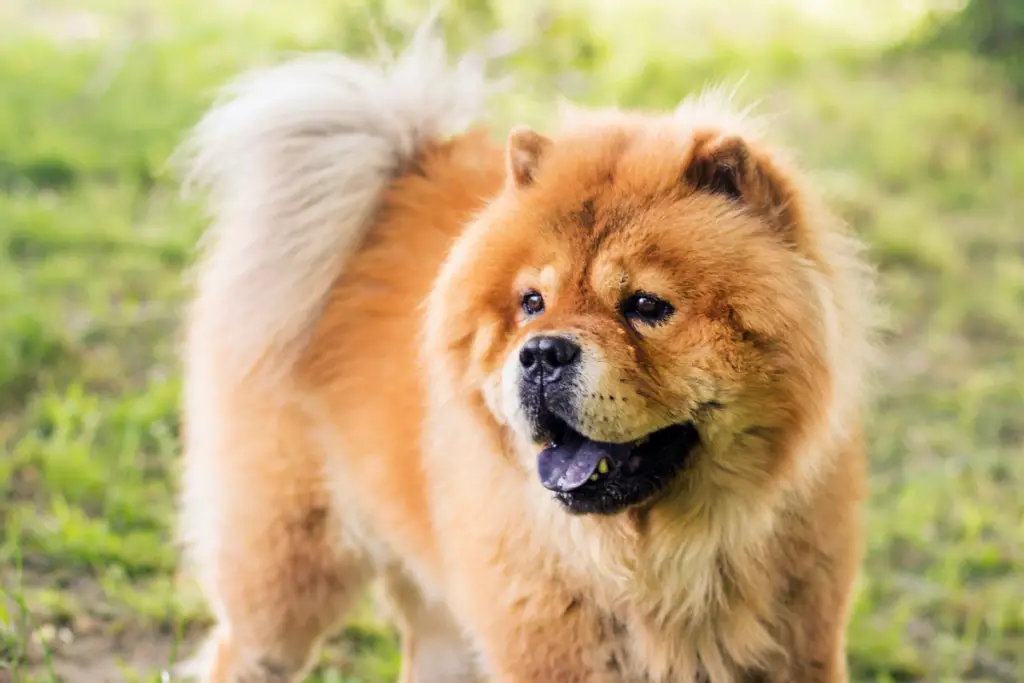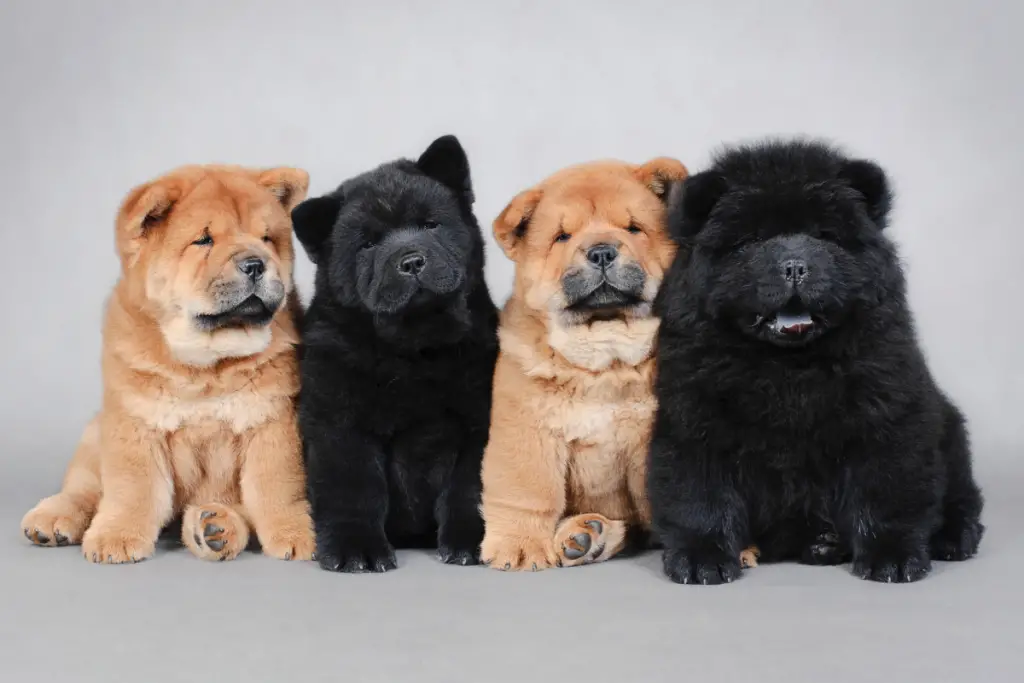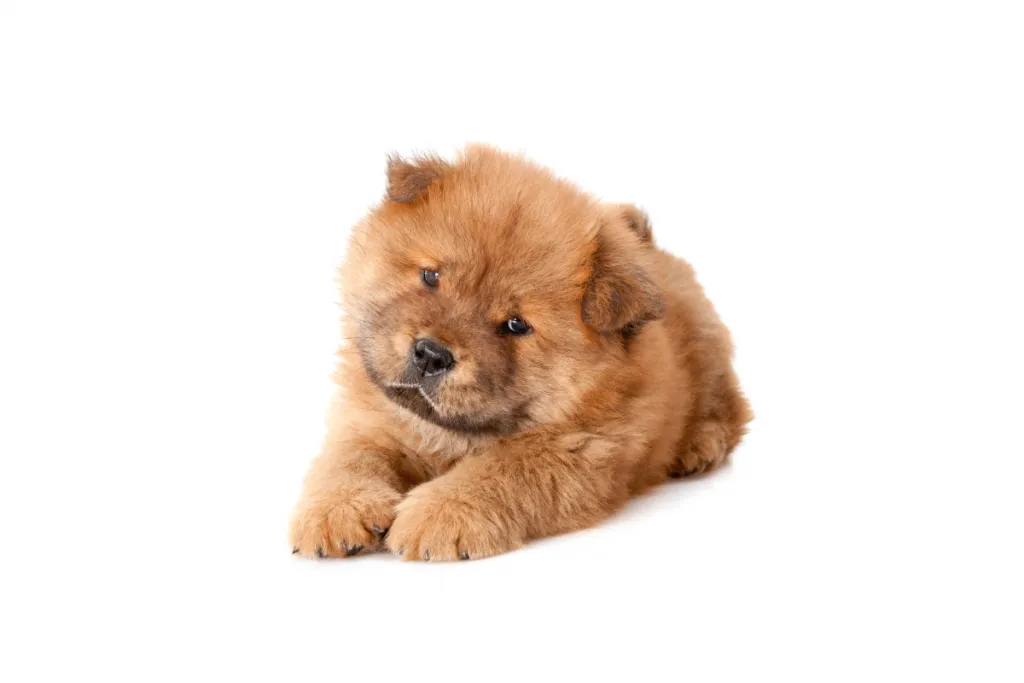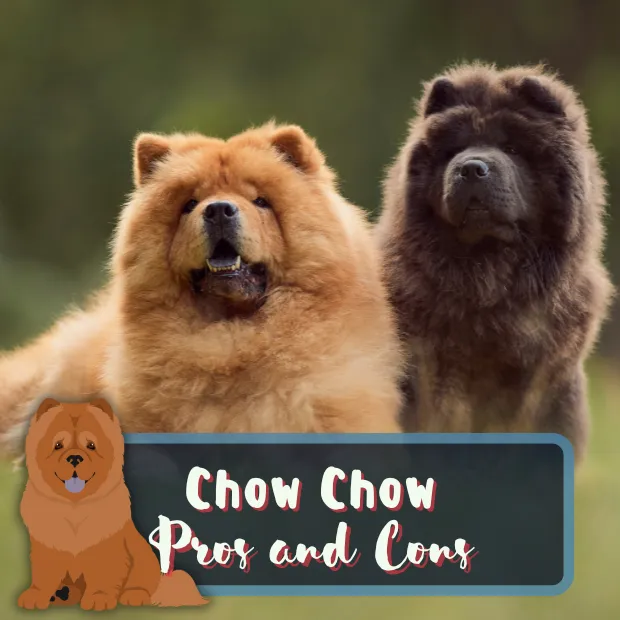Owning a Chow Chow can be a wonderful experience, but it’s important to know what you’re getting yourself into before making your decision. In this post, we’ll take a look at some of the things you need to consider before bringing one of these beautiful dogs into your home.
So whether you’re already thinking about adding a Chow Chow to your family or are just curious about what they’re like, keep reading for all the details of Chow Chow pros and cons!
Table of Contents
ToggleContents of this article:
- Chow Chow pros
- Chow Chow cons
- Size.
- Colors.
- Chow Chow grooming needs.
- Life expectancy.
- Health concerns.
- History of the Chow Chow.
- Are Chow Chows very active dogs?
- Chow Chow temperament.
- Are Chow Chows easy to train?
- Do Chow Chows make good family dogs?
- Do Chow Chows get along with other dogs?
- Do Chow Chows get along with other pets?
- With strangers.
- Do Chow Chows bark a lot?
- As puppies.
- As adults.
- Similar breeds to consider.
- Chow Chow pros and cons – Summary.
Chow Chow pros:
- Their stunning coat.
- Independent and loyal.
- Great watchdogs.
- Calm temperament.
- Unique appearance that is sure to turn heads.
- Relatively low energy dogs, which makes them ideal for families or individuals who live a more laid-back lifestyle.
- Not known for being excessive barkers, so they won’t disturb your neighbors or disrupt your home life with incessant noise.
Chow Chow cons:
- Can be aggressive toward other animals and strangers if not properly socialized.
- High-maintenance breed when it comes to grooming.
- Not the best choice for first-time dog owners.
- Aloof and independent, which can make them challenging to train.
- Can be prone to health problems like hip dysplasia and entropion.
Size.
Chow Chows are a medium to large breed, with males typically weighing in at around 55 pounds and females averaging about 45 pounds.
This can make them difficult to handle for some people, especially if they’re not used to large dogs.
Males typically stand about 18-20 inches tall at the shoulder, while females are slightly smaller at 17-19 inches.
Colors.
Chow Chows have a thick, dense coat that comes in a variety of colors, including black, blue, cream, red, and brown.
Their coat is one of their most distinguishing features, and it’s what gives them their “lion-like” appearance.
Chow Chow grooming needs.
The thick coat of a Chow Chow requires regular grooming to prevent mats and tangles. Their coat should be brushed for at least an hour a week, and they will also need to be bathed every few weeks.
While they don’t require professional grooming, it’s a good idea to have a groomer trim their nails and clean their ears on a regular basis.
Do Chow Chows shed?
Chow Chows are moderate shedders, so you can expect to find hair around your home.
They shed the most during the spring and fall, but their coat should be brushed regularly to help reduce the amount of hair that is shed.
Be prepared for some extra vacuuming!
Are Chow Chows hypoallergenic?
Chow Chows are not considered to be hypoallergenic, so if you’re allergic to dogs, they’re probably not the best breed for you.
Life expectancy.
The average lifespan of a Chow Chow is 8-12 years.
Health concerns.
Chow Chows are an ancient breed, and they have remained relatively healthy over the years. However, like all breeds, they are susceptible to certain health problems.
Some of the most common health concerns include hip dysplasia, entropion, and allergies, so its important to find a good breeder who health tests their breeding stock.
Chow Chows are also prone to weight gain, so it’s important to make sure they get plenty of exercise and eat a healthy diet.

History of the Chow Chow.
The Chow Chow is a primitive dog breed that originated in China, where it is still considered to be a national treasure.
The exact origins of the breed are unknown, but it is thought to be one of the oldest breeds in existence. There are records of chow chows being present in China as early as the Han Dynasty (206 BC – 220 AD).
It is rumoured they gained their name when they were first shipped to England, arriving in boxes marked “chow chow” – pidgin English for miscellaneous merchandise. The customs people assumed that was what they were called and the name stuck.
The Chow Chow is a member of the Spitz family of dogs, which includes other breeds such as the Akita Inu and the Samoyed.
The Spitz family is characterized by their thick fur coats, pointed ears, curly tails, and wedge-shaped head. The Chow Chow is the only member of the Spitz family that has a blue-black tongue.
The Chow Chow was originally bred as a working dog, and was used for hunting and guarding. They were also used as guard dogs for homes and businesses.
Today, Chow Chows are still used as working dogs in some parts of the world, but they’re more often seen as pets. They’re loyal and devoted to their families, and they make great watchdogs.
The Chow Chow has a unique appearance, with a thick, plushy fur coat and a broad, flat head. They are also known for their scowling expressions and aloof personalities.
Chow Chows are typically independent and reserved, and can be quite protective of their families.
If you’re considering adding a Chow Chow to your family, be sure to do your research to make sure this is the right breed for you. They are not for the faint hearted!
Are Chow Chows very active dogs?
Chow Chows are relatively low energy dogs, but they do need daily exercise. A short walk or play session in the yard will suffice, but they won’t be happy if they’re cooped up all day.

Chow Chow temperament.
Chow Chows are typically loyal and protective of their family, but they can also be aloof and independent. They’re not the most outgoing breed, but they’re not shy either.
They’re not known for being overly friendly, but they should not be aggressive.
Early and ongoing socialization is very important for Chow Chows, as they can be aggressive toward other animals and strangers if they’re not properly socialized.
Are Chow Chows easy to train?
Honestly? No! They’re amongst the trickiest dogs to train.
“There is probably furniture out there that is more trainable than Chows!”
Stanley Coren, the psychology professor who devised the Intelligence of Dogs ranking
Coren’s tests showed it can be hard to teach a Chow Chow basic cues, such as to sit when you tell them to. In the study it took between 80 and 100 tries before the dog understood what was required.
However, even when successful, the dog would only remember what they were taught 25% of the time.
Whilst the methodology in the Intelligence of Dogs study was somewhat flawed, nobody will deny that Chows are independent thinkers, which can make them challenging to train.
If you ask a Chow for the same behavior repeatedly during a training session, they are likely to lose interest and disengage from you.
They respond best to positive reinforcement methods, such as treats and praise.
Do Chow Chows make good family dogs?
Chow Chows can make good family dogs if they are properly socialized.
They’re not typically very playful – so they’re not the type of dog to play fetch or interact with toys, but they are loyal and protective of their family.
While they can be aloof around strangers, they’re typically very loving and affectionate with the people they know and trust.
Do Chow Chows get along with other dogs?
Chow Chows can get along with other dogs if they are properly socialized. They’re not typically very playful, but they can coexist peacefully with other dogs.
Do Chow Chows get along with other pets?
Chow Chows are a primitive breed with a high prey drive. They can get along with other pets if they are properly socialized from an early age but it is in their nature to chase cats and other small animals.
If you have other pets in your home, it’s very important to monitor their interactions and keep them separate if necessary.
With strangers.
Chow Chows can be aloof and independent with strangers, but they’re not typically aggressive. They should not be shy or fearful if they’ve been properly socialized.
They are not known for being friendly towards humans other than their family.
Do Chow Chows bark a lot?
Chow Chows are not known for being particularly vocal, but they will bark if they feel threatened or if someone is at the door.

As puppies.
Be warned – there is nothing on this earth as cute as a Chow puppy! If you go to view a litter of Chow puppies, be prepared to have your heart stolen.
Chow puppies are notoriously cuddly and adorable, but they can also be difficult to motivate. They’re not the easiest breed to potty train, so be patient and consistent with your training methods.
As adults.
Chow Chows reach full maturity at around 2 years old. At this point, they will have settled into a relatively low energy lifestyle. They still need daily exercise, but they’re not as active as they were as puppies.
Similar breeds to consider.
If you’re looking for a dog with similar characteristics to a Chow Chow, here are a few breeds to consider:
- Shar pei
- Akita
- Shiba Inu
- Korean Jindo Dog
- Tibetan Mastiff
- Himalayan Sheepdog.
Chow Chow pros and cons – Summary.
Now that you know a little bit more about Chow Chows, it’s time to decide if they’re the right breed for you.
If you think you can handle their independent streak and high grooming needs, then a Chow Chow could be a great addition to your family.
But if you’re not sure you’re up for the challenge, there are plenty of other amazing dog breeds out there that might be a better fit.







